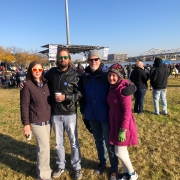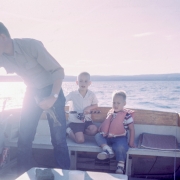Out of the Darkness
Hank Buckwalter, his wife, Chelsea, and Rommie and I participated in the Out of the Darkness Walk this past weekend at Waterfront Park. It can be emotionally overwhelming to be in a gathering of people that are celebrating the lives and passing of their loved ones. I listened as the “Honor Beads” were given to…





